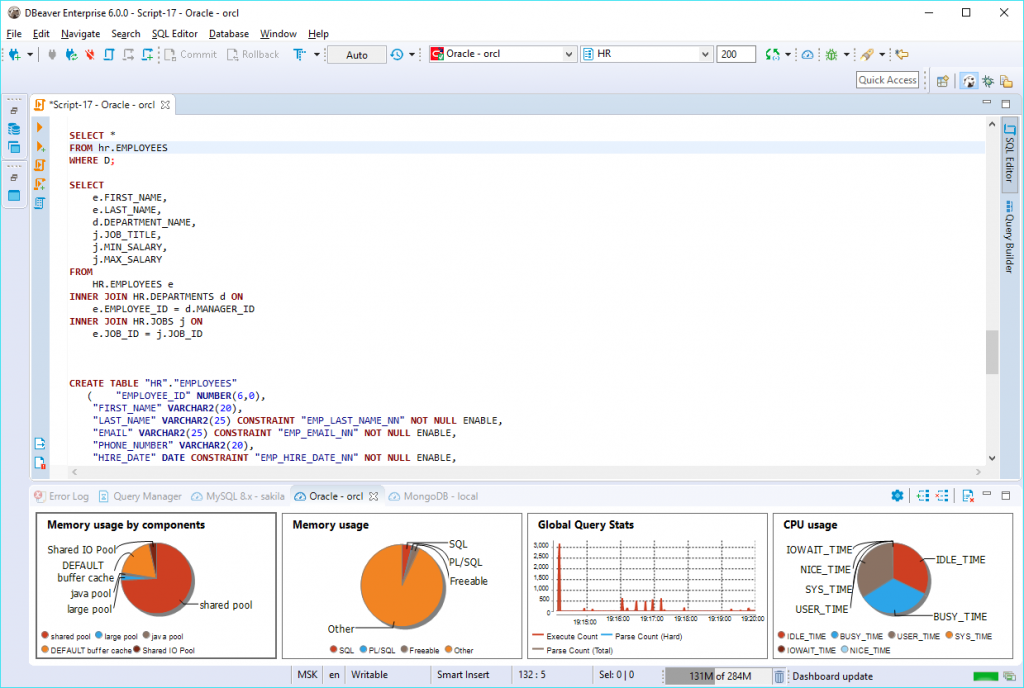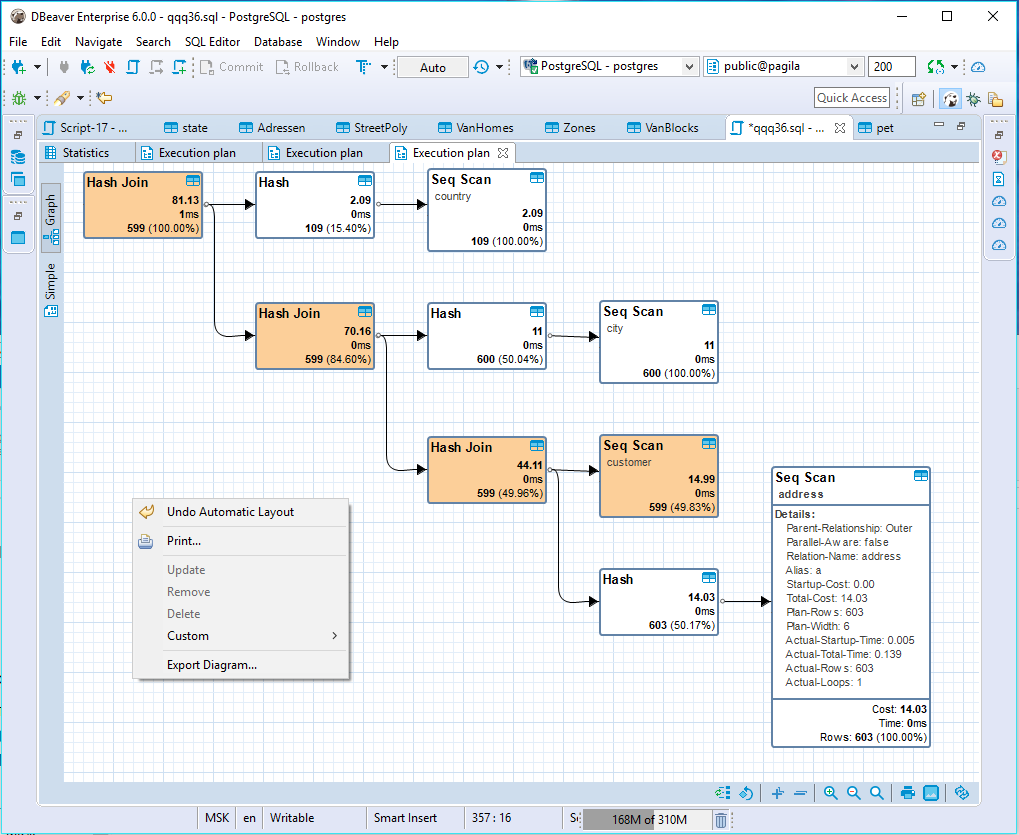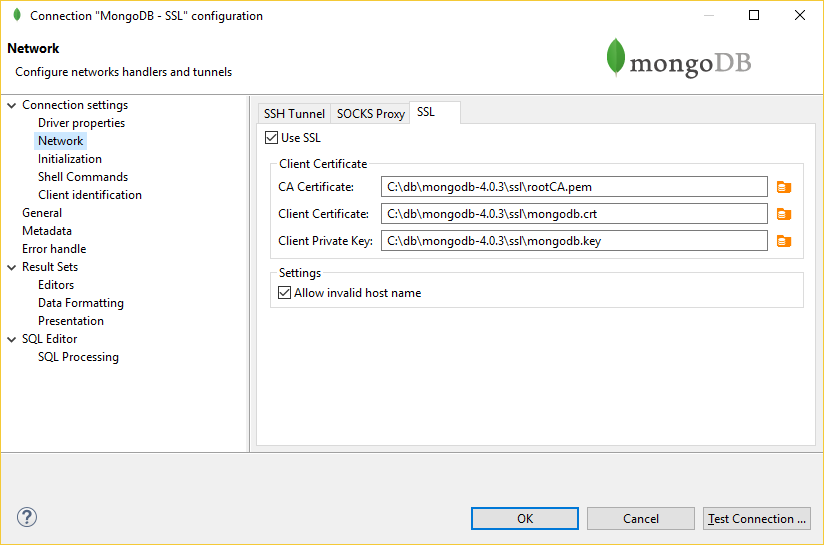We are glad to introduce new big step in DBeaver history – release 6.0.
From 5.0 we have significantly improved support for PostgreSQL and related databases (Greenplum, CockroachDB, Timescale, etc), created advanced MS SQL server extension, added support for different cloud databases in AWS and MS Azure, added support and graphical view for InfluxDB, increased number of databases supported out-of-the-box to more than 70.
We simplified connection wizard and the process of extensions installations. We implemented visual query builder, analytical panels with charts, graphical view for the execution plan, and customisable dashboards for server health monitoring. We added mock data generators, debugger for PostgreSQL, and completely renovated data migration mechanism.
We closed more than 1600 issues on public GitHub.
And now we are ready to move forward.
But firstly, let’s look at the last changes.
Dashboards are one of the new features of release 6.0. We have created a pre-defined dashboards for PostgreSQL, MySQL, MariaDB and Oracle for server health and state monitoring. You can switch between time series, bar and pie views for the better visualization. But it is much more important that you can create your own dashboards especially for your needs. The Dashboards button can be found on the top toolbar.
The next new interesting feature is a new graphical representation for the execution plan. Optimizing SQL scripts become easier. The most expensive path is highlighted on the diagram. You can collapse irrelevant nodes and expand details for other ones. Execution plans are available for PostgreSQL, MySQL, MariaDB, Oracle, DB2, Exasol and Firebird.
From the version 6.0 DBeaver EE supports SSL for MongoDB. There are no problems with connection to MongoDB in cloud anymore. We know that it is really important for a big part of our users. So, we are glad to cover this lack of functionality.
We made one more step forward for Cassandra security. Now, you can look through the roles permission list.
And as usual, we would like to introduce new supported databases: Apache Ignite, MapD, CrateDB and Dremio.
![]()
![]()
![]()
![]()




